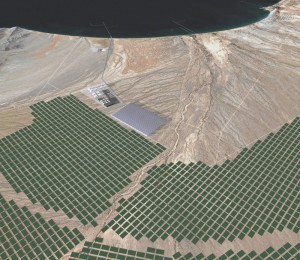
But there are companies out there looking into ways to turn algae biofuel into a reality. One of them is OriginOil.
The California-based technology company recently filed for patent protection for its new Algae Screen technology, which is described as a process to keep algae healthy and productive by selectively eliminating microscopic predators without the use of chemicals. The technology employs an electromagnetic pulse, similar to what is used to achieve Live Extraction, one of the company’s trademark technologies. It said it will offer Algae Screen and Live Extraction in one integrated offering for growers.
“Much of our technology is based on the same underlying science, so it makes sense to create ‘functionality hubs’ to simplify field operations and create more value for producers,†said OriginOil’s CEO, Riggs Eckelberry. “We see much more integration activity as the algae industry matures.â€
All types of algae are targets for invasion, the company said, and oil-rich algae are attractive to rotifers and other microscopic predators. “Algae Screen will protect an algae culture continuously from microscopic invaders, such as rotifers, bacteria, and ciliatesâ€, said Paul Reep, Senior VP of Technology.
The problem with such invaders is that they reduce the value of the algae crop by metabolizing valuable oil and biomass. Besides, invasions can choke off algae growth and reduce the percentage of daily harvest. Open ponds are particularly vulnerable to this type of problem, although it exists in all types of growth systems.
Algae Screen works by targeting invaders with calibrated pulses of low-power electromagnetic energy that leave the algae safe. The pulsing and power levels are adjustable for different algae types and environmental conditions such as water hardness and salinity.





